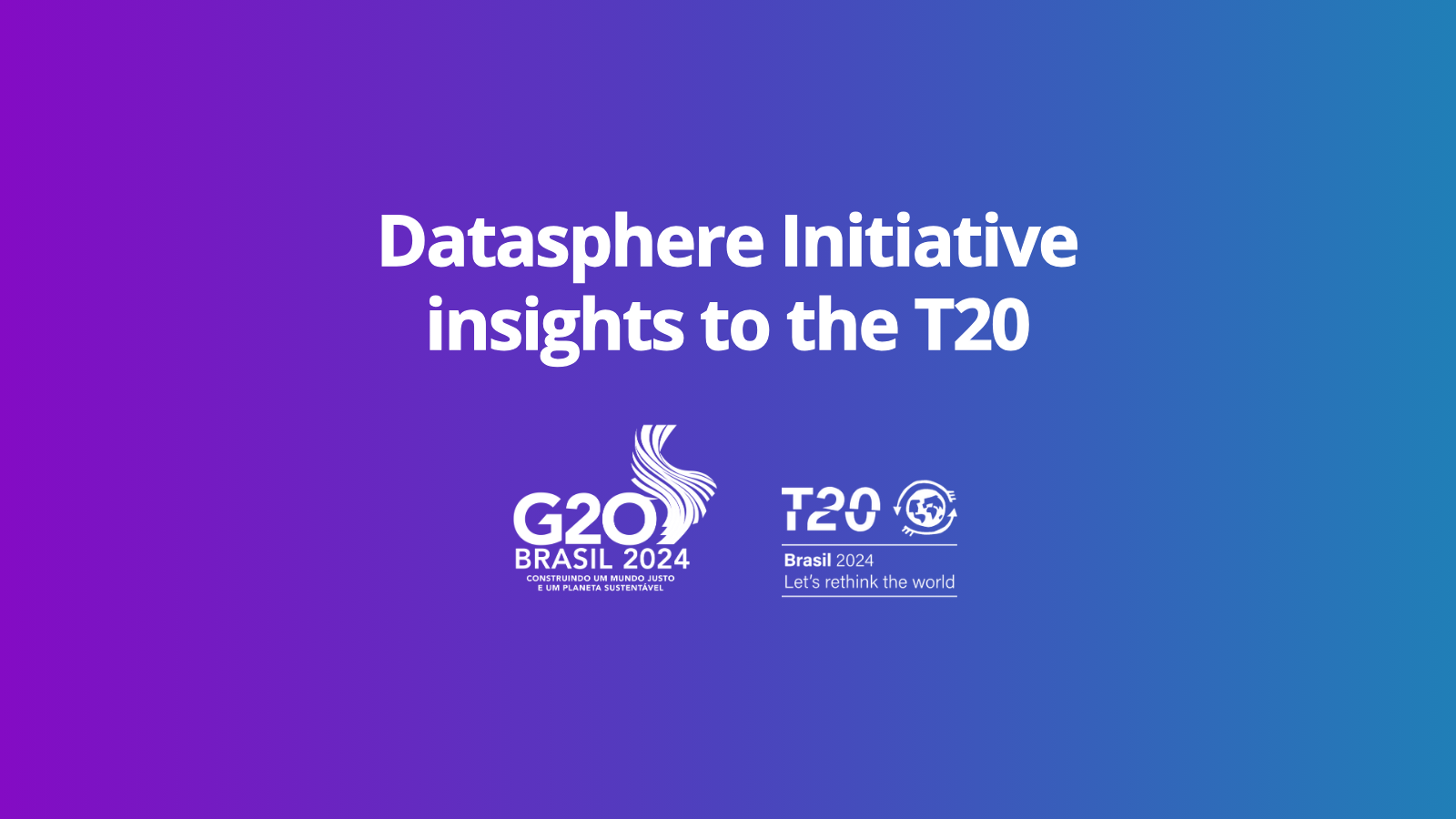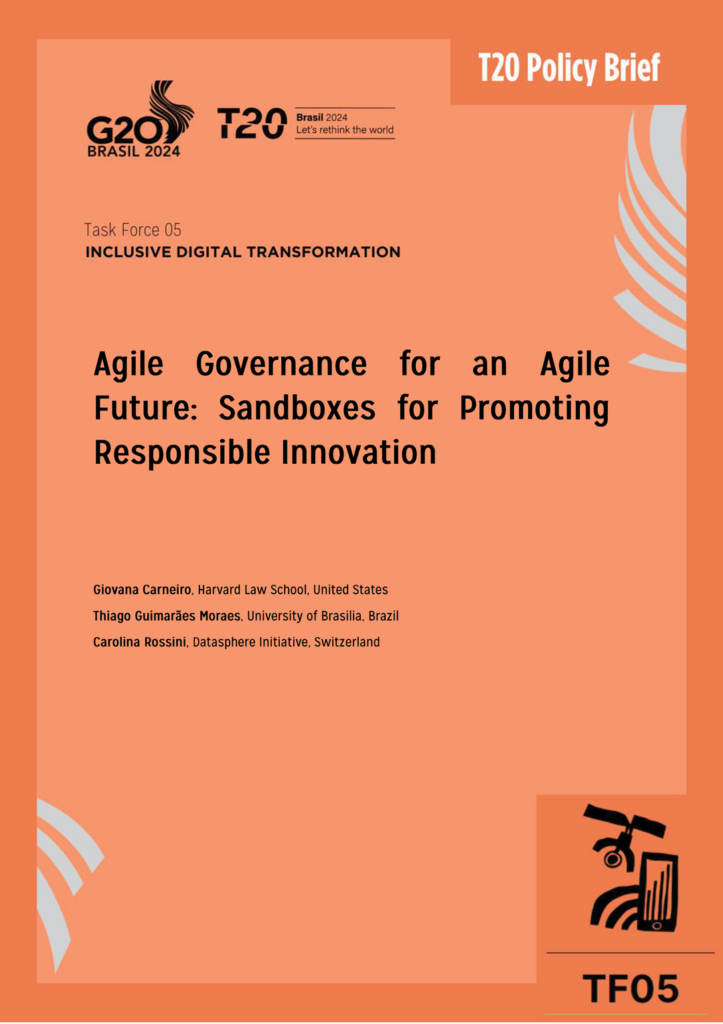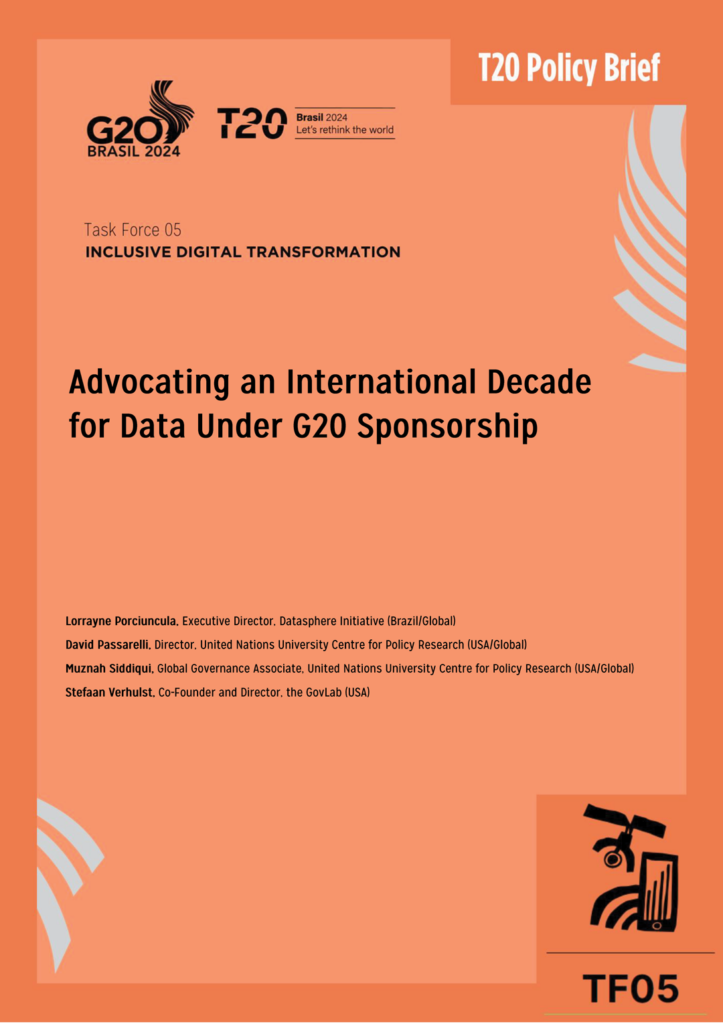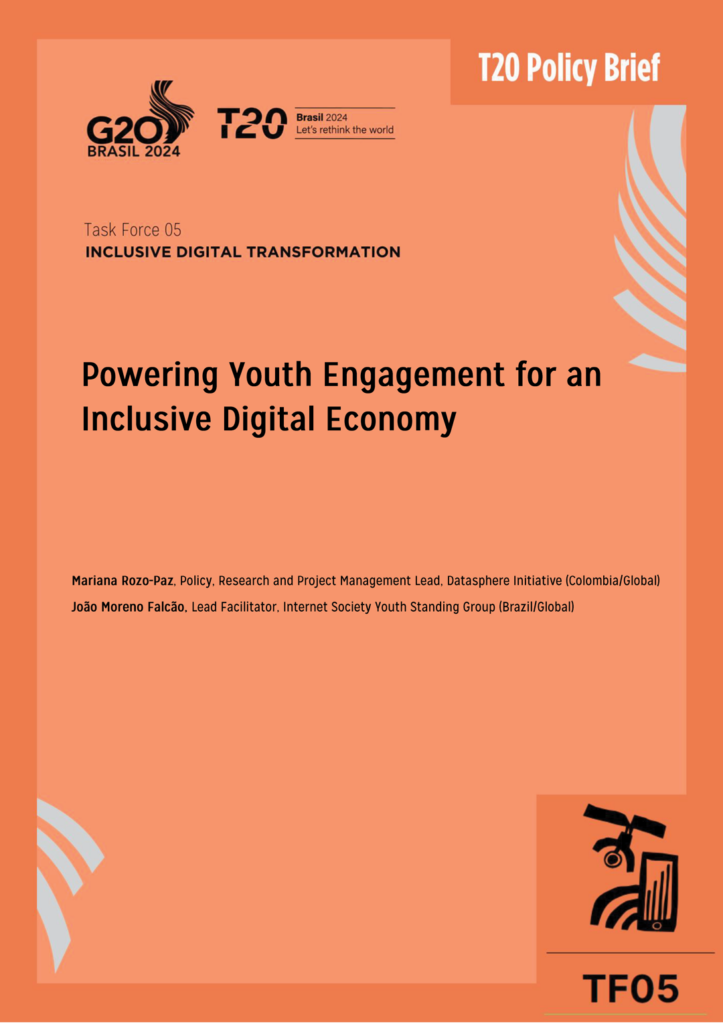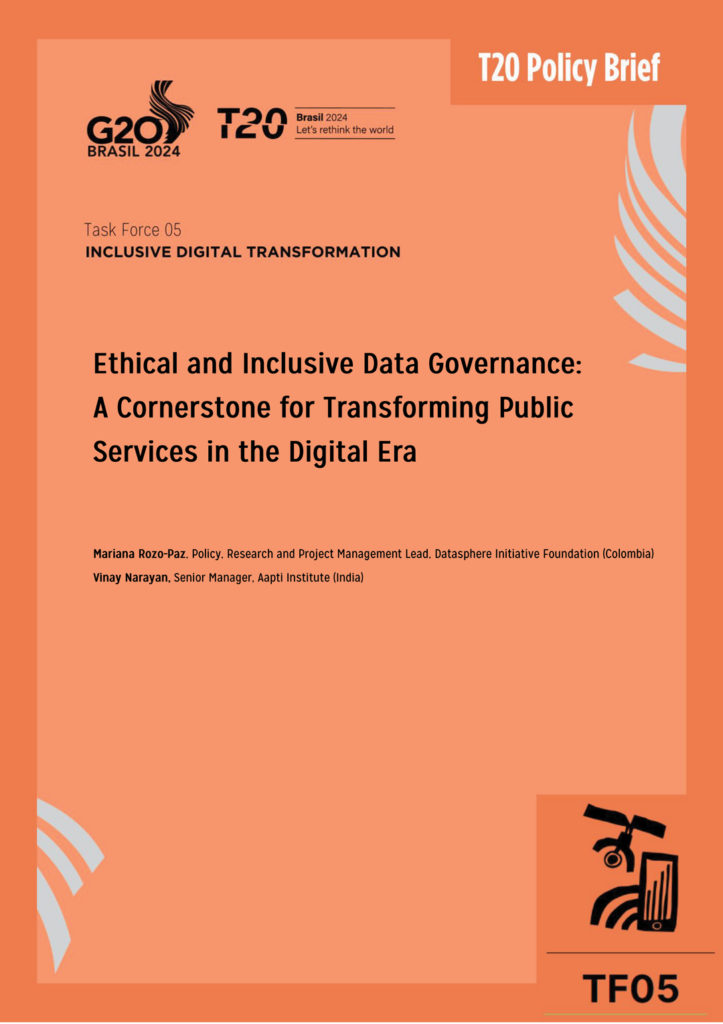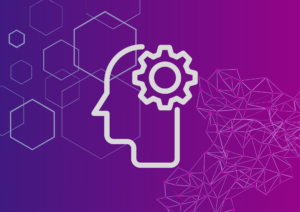As we step into the final stretch of Brazil’s G20 Presidency before handing over to South Africa, the Datasphere Initiative is happy to share a round-up of the T20 policy papers we contributed to and hope to see recommendations taking shape!
[T20 Policy Brief on Sandboxes for Responsible Innovation]
One of the Datasphere Initiative co-Founders Carolina A. Rossini, JD, MA, LLM, MBA authored with Giovana Carneiro and Thiago Moraes the paper entitled “Agile Governance for an Agile Future: Sandboxes for Promoting Responsible Innovation” explaining the instrumental role of sandboxes in fostering responsible AI development and mitigating associated risks.
Three recommendations:
1 – AI Sandboxes should not focus on regulatory leeway but rather on fostering a responsible innovation environment.
2 – AI sandboxes should take guidance from privacy sandboxes, which have applied “by design” approaches to ethics and human rights.
3 – G20 Member States should cooperate when designing, planning, and implementing AI sandboxes.
Full version here
[T20 Policy Brief on Advocating an International Decade for Data (2025-2035) under G20 sponsorship]
Executive Director Lorrayne Porciuncula teamed up with David Passarelli and Muznah Siddiqui of United Nations University and Stefaan Verhulst of GovLab to share how collaboration among diverse stakeholders—governments, private sector, civil society, and academia through an international decade on data — could create a more unified approach to data governance.
Three recommendations:
- Identify a global vision for data cooperation that can simulate international investment, bridge capacity gaps between developed and developing nations, leverage specialist expertise in the private sector, and reduce barriers to data sharing.
- Support safe and systematic data sharing to catalyze economic transformations in developed and developing countries; facilitate analysis for preparedness, planning, and prevention; and more generally, support innovation and the delivery of global public goods.
- Create space for accelerated action and ownership by all stakeholder groups, underpinned by a common commitment to improving consistency and coherence in the data policy landscape.
Full version here
[T20 Policy Brief on Powering Youth Engagement for an Inclusive Digital Economy]
Policy, Research and Project Management Lead Mariana Rozo-Paz teamed up with Jõao Moreno Falcão from the Internet Society Youth Standing Group to advocate for youth meaningful engagement in digital economy policy and leverage youth’s perspectives on how to ensure that new digital technologies advance the Sustainable Development Goals (SDGs).
Three recommendations:
- Enhance youth participation: Focus on promoting digital literacy, mental health, and digital welfare for youth while navigating trade-offs between empowerment and safeguarding against digital risks. Promote institutional change to enable youth participation in policy-making processes, driving actions toward a more equitable and sustainable digital future.
- Invest in digital literacy: Invest in comprehensive digital literacy programs that equip youth with analytical and socio-emotional skills, integrating these initiatives into early education curricula. Utilize the G20 platform to champion global efforts in promoting youth empowerment through digital literacy, fostering a generation capable of leveraging technology for their well-being while safeguarding their digital rights.
- Prioritize data for the SDGs: Enhance digital literacy among youth to drive progress towards the SDGs and future employment, prioritizing equitable access and participation in the digital age. Promote initiatives that bridge the digital divide and advocate for simpler data privacy terms, empowering youth to control their personal data and contribute to a more inclusive digital society.
Full version here
[T20 Policy Brief on Ethical and Inclusive Data Governance]
Policy, Research and Project Management Lead Mariana Rozo-Paz teamed up with Vinay Narayan from Aapti Institute to delve into the critical role of ethical and inclusive data governance in shaping Digital Public Infrastructures (DPIs) and further explore the potential benefits of open access to data generated by DPIs, drawing insights from the experiences of India and Brazil.
Three recommendations:
- Adopt a Holistic Data Governance Framework: Implement a comprehensive data governance framework that ensures ethical and inclusive management of data, preventing monopolization by private entities and promoting equitable benefit-sharing and accountability.
- Build Sustainable and Resilient Data Infrastructures: Develop data infrastructures that are environmentally sustainable and secure, integrating privacy and security considerations from the start.
- Foster Multistakeholder Cooperation: Encourage a multistakeholder approach involving governments, private sector, and civil society to create interoperable data policies and prevent exclusive control over data, promoting trust and inclusive benefits.
Full version here
